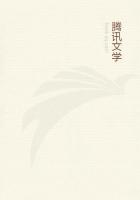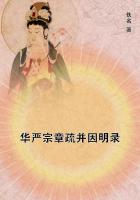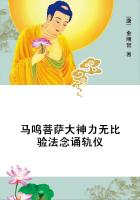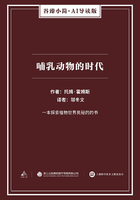Before long, the decisive moment came. There was a General Election, and it became certain that the Tories, at last, must come into power. The Queen disliked them as much as ever; but, with a large majority in the House of Commons, they would now be in a position to insist upon their wishes being attended to. Lord Melbourne himself was the first to realise the importance of carrying out the inevitable transition with as little friction as possible; and with his consent, the Prince, following up the rapprochement which had begun over the Regency Act, opened, through Anson, a negotiation with Sir Robert Peel. In a series of secret interviews, a complete understanding was reached upon the difficult and complex question of the Bedchamber. It was agreed that the constitutional point should not be raised, but that on the formation of the Tory Government, the principal Whig ladies should retire, and their places be filled by others appointed by Sir Robert. Thus, in effect, though not in form, the Crown abandoned the claims of 1839, and they have never been subsequently put forward. The transaction was a turning point in the Prince's career. He had conducted an important negotiation with skill and tact; he had been brought into close and friendly relations with the new Prime Minister; it was obvious that a great political future lay before him.
Victoria was much impressed and deeply grateful. "My dearest Angel," she told King Leopold, "is indeed a great comfort to me. He takes the greatest interest in what goes on, feeling with and for me, and yet abstaining as he ought from biasing me either way, though we talk much on the subject, and his judgment is, as you say, good and mild." She was in need of all the comfort and assistance he could give her. Lord M. was going, and she could hardly bring herself to speak to Peel. Yes; she would discuss everything with Albert now!
Stockmar, who had returned to England, watched the departure of Lord Melbourne with satisfaction. If all went well, the Prince should now wield a supreme political influence over Victoria. But would all go well?? An unexpected development put the Baron into a serious fright. When the dreadful moment finally came, and the Queen, in anguish, bade adieu to her beloved Minister, it was settled between them that, though it would be inadvisable to meet very often, they could continue to correspond. Never were the inconsistencies of Lord Melbourne's character shown more clearly than in what followed. So long as he was in office, his attitude towards Peel had been irreproachable; he had done all he could to facilitate the change of government, he had even, through more than one channel, transmitted privately to his successful rival advice as to the best means of winning the Queen's good graces. Yet, no sooner was he in opposition than his heart failed him. He could not bear the thought of surrendering altogether the privilege and the pleasure of giving counsel to Victoria--of being cut off completely from the power and the intimacy which had been his for so long and in such abundant measure. Though he had declared that he would be perfectly discreet in his letters, he could not resist taking advantage of the opening they afforded. He discussed in detail various public questions, and, in particular, gave the Queen a great deal of advice in the matter of appointments. This advice was followed. Lord Melbourne recommended that Lord Heytesbury, who, he said, was an able man, should be made Ambassador at Vienna; and a week later the Queen wrote to the Foreign Secretary urging that Lord Heytesbury, whom she believed to be a very able man, should be employed "on some important mission." Stockmar was very much alarmed. He wrote a memorandum, pointing out the unconstitutional nature of Lord Melbourne's proceedings and the unpleasant position in which the Queen might find herself if they were discovered by Peel; and he instructed Anson to take this memorandum to the ex-Minister. Lord Melbourne, lounging on a sofa, read it through with compressed lips. "This is quite an apple-pie opinion," he said.
When Anson ventured to expostulate further, suggesting that it was unseemly in the leader of the Opposition to maintain an intimate relationship with the Sovereign, the old man lost his temper. "God eternally damn it!" he exclaimed, leaping up from his sofa, and dashing about the room. "Flesh and blood cannot stand this!" He continued to write to the Queen, as before; and two more violent bombardments from the Baron were needed before he was brought to reason. Then, gradually, his letters grew less and less frequent, with fewer and fewer references to public concerns; at last, they were entirely innocuous. The Baron smiled; Lord M. had accepted the inevitable.
The Whig Ministry resigned in September, 1841; but more than a year was to elapse before another and an equally momentous change was effected--the removal of Lehzen. For, in the end, the mysterious governess was conquered.
The steps are unknown by which Victoria was at last led to accept her withdrawal with composure--perhaps with relief; but it is clear that Albert's domestic position must have been greatly strengthened by the appearance of children. The birth of the Princess Royal had been followed in November, 1841, by that of the Prince of Wales; and before very long another baby was expected. The Baroness, with all her affection, could have but a remote share in such family delights. She lost ground perceptibly. It was noticed as a phenomenon that, once or twice, when the Court travelled, she was left behind at Windsor. The Prince was very cautious; at the change of Ministry, Lord Melbourne had advised him to choose that moment for decisive action; but he judged it wiser to wait. Time and the pressure of inevitable circumstances were for him; every day his predominance grew more assured--and every night.
At length he perceived that he need hesitate no longer--that every wish, every velleity of his had only to be expressed to be at once Victoria's. He spoke, and Lehzen vanished for ever. No more would she reign in that royal heart and those royal halls. No more, watching from a window at Windsor, would she follow her pupil and her sovereign walking on the terrace among the obsequious multitude, with the eye of triumphant love. Returning to her native Hanover she established herself at Buckeburg in a small but comfortable house, the walls of which were entirely covered by portraits of Her Majesty. The Baron, in spite of his dyspepsia, smiled again: Albert was supreme.

